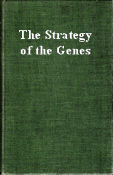
Our mistake, says C. H. Waddington, is to believe that everything can be subjected to a simple cause-and-effect analysis. Faced with a collapse of the global ecological, economic and political systems for which no adequate explanations exist, we need new models and tools for thought to help us.
Complexity, whether in a biological entity or a socio-political structure, is not totally haphazard. The particles of the various worlds in which we live – physical, biological, economic, ecological, ethical, mathematical – all interact with each other as a series of systems and these systems have common features. By thinking of what goes on around us not as objects or processes, but as systems and relationships, we can develop a more useful understanding of our world and ourselves.
Using an astounding variety of examples, C. H. Waddington explains and elaborates these new tools for thought. His book is unexpected, challenging and original – but not difficult to absorb. After reading Tools for Thought it will be hard to see the natural world in the same way as before and new dimensions scientific thinking will begin to suggest themselves.
Waddington was always clear about what science could and could not do, which problems needed more scientific work, and which had to be left to other fields and aspects of the total culture. But he did believe firmly in the scientific method and the need to ask questions which would produce answers.
The Man Made Future is a work-book which gives direction and meaning to the human condition in an emerging global culture. Undogmatic, ruthlessly honest in his acceptance of the twists and turns of the new biology and always sensitive to the beauty and value of human life, Waddington has produced a real curriculum for the development of the future.